General
HERS-EA Third Academy Urges Women Leaders to Soar!
Published
7 years agoon
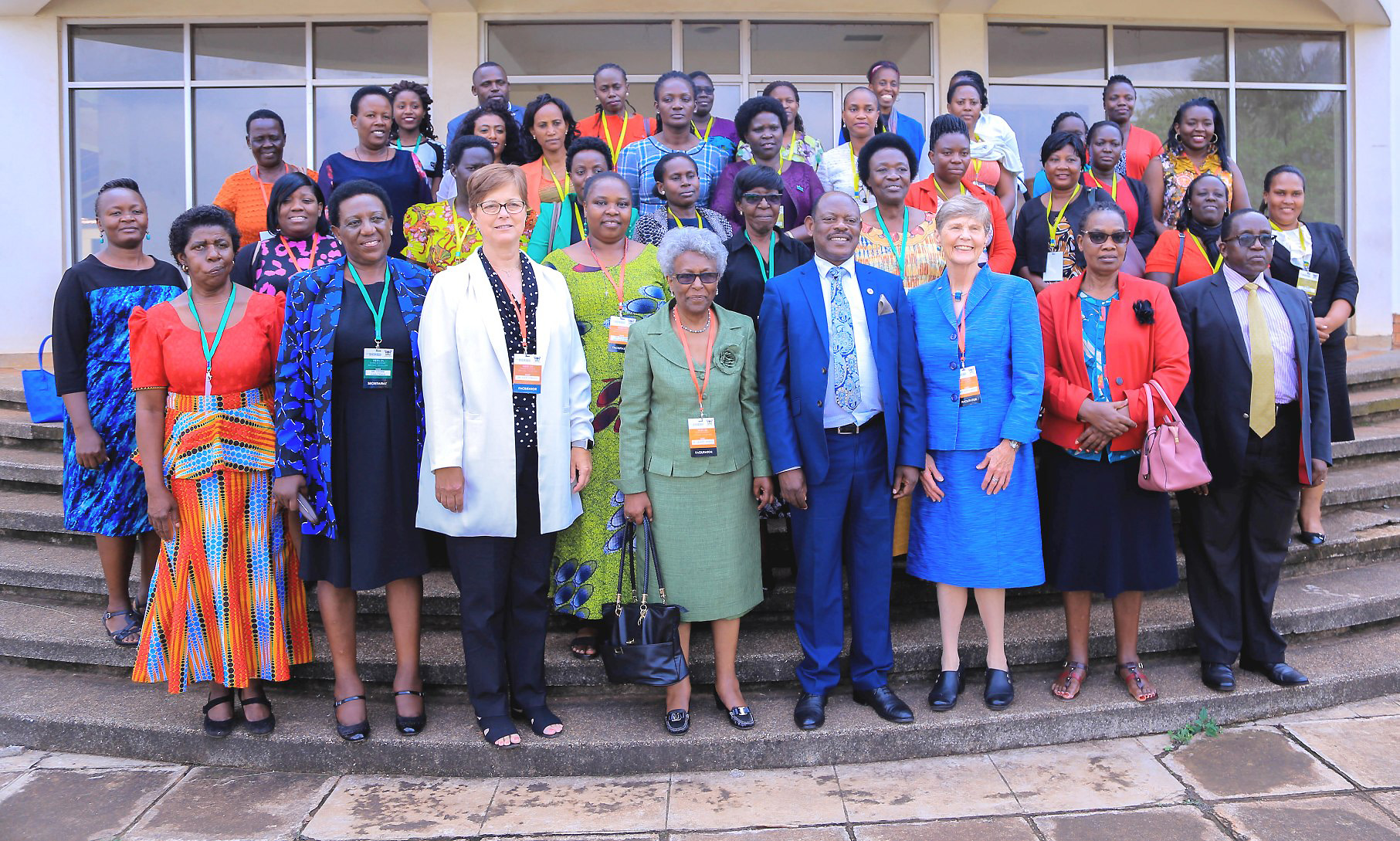
The Higher Education Resource Services-East Africa (HERS-EA) Third Academy got off to a flying start on Monday, 1st July 2019 with women leaders drawn from various institutions in Uganda and abroad being urged to let go of all burdens so as to soar professionally and academically. Set to be held under the theme: Enabling you soar to new heights, the week-long academy got off with an opening ceremony presided over by the Vice Chancellor, Makerere University, Prof. Barnabas Nawangwe and a keynote address delivered by Prof. Judith White, Former President and Executive Director, HERS-USA.
Welcoming participants and facilitators to the opening ceremony, HERS-USA Alumnus and HERS-EA Coordinator, Ms. Naomi Lumutenga could not help but express the inner joy that came with holding the Third Academy. This, she noted, was a giant leap forward from the humble beginnings of the East Africa Chapter in 2014 as an affiliate of HERS based in Denver, Colorado, USA.
HERS-EA provides intensive residential leadership and management development training focused on women, mainly in higher education institutions and administration. “This week, you will listen to presentations by seasoned women who have a wealth of knowledge and experience but above all else, they are willing to share it freely” added Ms. Lumutenga.
The HERS-EA coordinator further urged participants to view the Academy as a space to develop ‘take home’ skills as well as think through a leadership project, which will be nurtured and refined at the Academy and hopefully, be implemented at their home institutions. “To help you keep record of this, you will be issued with a journal to use during the week and we hope that you will continue to update it when you leave the Academy.”
The curriculum for the Third Academy will be broken down into the three main areas of; Institutional Development which will cover managing and leading change among other topics as well as Personal Development with topics such as professional women’s economic empowerment through enterprise development and management for profit maximization. The curriculum will thirdly cover Networking, with sessions on personal growth and professional development and many others.
Addressing the gathering, the Chairperson HERS-EA Dr. Ruth Muwazi whose enthusiasm outweighed the fact that she had retired from Makerere University service in 2018, shared that her organisation was committed to raising the proportion of women in leadership and managerial positions in Higher Education Institutions, the same way she and a few others were empowered.
“We want to be a resource for developing women leaders in Higher Education and other Institutions” she enthused. “Our HERS cohort that trained in South Africa was helpless until Prof. Margaret Khaitsa, Dr. Florence Wakoko-Studstill and Ms. Naomi Lumutenga came along and brought us together to form HERS-EA. I may be a little soft spoken but HERS has taught me that no matter what your character is, you are a fighter” added Dr. Muwazi in encouragement.
Delivering his address at the Third Academy, the Vice Chancellor, Prof. Barnabas Nawangwe thanked Prof. Judith White, Amb. Dr. Gennet Zewide, from Ethiopia, and other facilitators for flying thousands of kilometres to Uganda, so as to empower women leaders in higher education at no cost.
“I also thank Prof. Margaret Khaitsa, Dr. Florence Wakoko-Studstill and Ms. Naomi Lumutenga for being patriotic by leaving the comfort of the Diaspora in the USA and UK to come to their roots and empower women leaders and contribute to socioeconomic transformation in East Africa” added Prof. Nawangwe.
The Vice Chancellor noted that more than thirty years ago, Makerere University took the step to address gender imbalance at the institution by introducing affirmative action, which awarded an additional 1.5points to females who qualified for admission.
“When I came to Makerere University there was no female member of staff and only one female student in the then Faculty of Technology” noted the Vice Chancellor, adding that ratios had significantly improved since then.
“We have therefore made a contribution to addressing the gender imbalance not only at Makerere University but also the entire country. It is not an easy task to erase the injustices of gender imbalance that have been practiced over time but we are aware that we need to do more and are committed” added Prof. Nawangwe.
He further reassured HERS-EA of Makerere University’s support in as far as training women leaders for socioeconomic transformation is concerned. “The only way we will emancipate our people from poverty is by ensuring that the gender that makes up the majority of our population is empowered to make a greater contribution to our countries’ economic development.”
Kicking off her address, the energetic Prof. Judith White who made use of a number of props shared that there was no better way to commemorate one year since retiring as Executive Director of HERS-USA than to deliver the keynote at the HERS-EA Third Academy hosted by Makerere University.
“Today we have an incredible assembly of wonderful women. You all come with a story of what empowered you and HERS will give you a chance to think about how to exercise leadership in the institutions you come from; you are now part of HERS’ soaring sisterhood” exuded Prof. White.
Prof. White’s keynote address then took on a historical tone for she deemed it was important that “we all need to think about our relationships in terms of history.” She then took her audience back to 1972; a turning point in her life marked by three events namely; the passing of Title IX, the founding of HERS and her graduation from Princeton University.
The passing of Title IX; a comprehensive federal law that prohibits discrimination on the basis of sex, as part of the education amendments of 1972 in the USA mandated the delivery of education to women such as Prof. White and people of colour. As such, she was able to ‘legitimately’ graduate along with the last group of men in the hitherto male-dominated graduation since the University’s founding in 1746.
Citing Women of influence, Women of vision: a cross-generational study of leaders and social change by Astin Helen and other authors, gave a sneak peek into the categories of women such as; Instigators and Inheritors whom she would expound more on during her sessions on Personal Development. She then went on to share some valuable lessons learnt over thirteen years of interaction with over two thousand women at HERS.
“You have to be strong” she started off, before quickly adding. “Make sure that you are using your strengths in ways that you want or else others will use your strengths in ways that they want.”
“Soaring takes sight” she continued on to the second lesson. “Soaring takes vision, insight and foresight. Whatever goes up does not stay up forever; it must come down. Plan for a soft landing: you don’t plan for if it happens; for it surely will, plan for when it happens. You want to always have a soft landing”
She then went on to tackle the third and possibly most important lesson. “Flight takes lightness; a lightness of spirit. You will have scars, sad moments and feeling that you have been let down, betrayed and not properly appreciated. The best way to stay light, to take the burden away is to share. Find other women with whom to soar… it is by finding strong women to surround yourself with that you will soar,” concluded Prof. White, the audience simultaneously according her rapturous applause.
The barriers to female advancement in higher education are not the preserve of developing countries. Nevertheless factors like strong cultural influence, segregation according to caste, socioeconomic background and institutional biases make them more endemic in Africa and Asia. There was therefore no better candidate to deliver a presentation on the aforementioned than Amb. Dr. Gennet Zewide, who has in the past served as Ambassador of Ethiopia to India; Chair Forum for African Women Educationalists (FAWE) and Minister of Education for Ethiopia.
Dr. Zewide whose PhD focused on the impact of education on women appreciated the role of FAWE in mentoring her as a female professional and underscored the importance of successful senior career women in uplifting their junior peers. She noted that the mindset of women not being decision makers was so entrenched in society, that in her personal experience, she rejected the first callup to serve as Minister of Education for Ethiopia, only agreeing after a few weeks of dealing with her deeply rooted fears. She went on to serve as Minister for thirteen years between 1992 and 2005.
Citing the caste system of India the former Ambassador of Ethiopia to India from 2006 to 2016 observed that women in certain jurisdictions face even greater barriers in advancement in higher education due to belonging to particular certain caste. She noted that it is important that affirmative action trickles even further down in such societies.
Borrowing from personal experience as a former academic and mother, she shared that society unknowingly expects women to not only perform as per their job descriptions but to also excel in order to be recognized. “As a mother, I had to bring my two daughters to my workplace whenever I had classes to teach in the evening and keep checking that they were doing their home work. I also had negotiated with students of my early morning classes to push them into mid morning because as a mother, I could not make it to work early enough!”
Dr. Zewide therefore urged the women to use their job placements to break the stereotypes of men as sole breadwinners and women as only being capable of home keeping. “I found it hard to convince my daughter who was in Grade 3 at the time that I had to work because her school textbooks portrayed women solely as the nurses, maids, cleaners and not bread winners. As soon as I became Minister, I made sure that this stereotype was changed in our children’s textbooks.”
Makerere University enjoys a good reputation as the champion of gender mainstreaming in the region. Delivering a presentation on Gender Mainsteraming: Situation analysis of the host university, the Director Gender Mainstreaming Directorate (GMD), Dr. Euzobia Mugisha Baine shared that Makerere’s first women studies programme was launched in 1991. This was however not without incidence as the first cohort was constantly asked why they were studying women.
Dr. Mugisha Baine however noted that rather than offend, this lingering question brought to light the need to progress from simply teaching and conducting research about women and gender to promoting gender equality and women’s empowerment in Makerere University.
“The Gender Mainstreaming Programme was approved by Senate and Council in 2001 and since 2000, institutionalization of gender as a cross cutting theme, has been a priority area in the University’s Strategic Plans” added Dr. Mugisha Baine.
On the research and innovation front, the Director noted that Makerere’s Gender Mainstreaming Programme (GMP) supports gender focused research and publications. She noted that although publishing in high impact journals lends credence to Makerere as an academic institution, research that leads to socioeconomic transformation was increasingly being promoted as part of institutional relevance to society. “This is where our Gender Mainstreaming Programme links up well with the HERS-EA model to bridge the gap between women in higher education and those at the grassroots.”
Dr. Mugisha Baine further noted that Makerere University was one of the institutions that was compliant with the Public Finance, Management Act because it is keen on addressing gender and equity concerns in the budget making processes. “We however have to go beyond simply budgeting and ensuring that gender-specific interventions are seen to their successful end.”
The HERS-EA Third Academy will run until Saturday, 6th July 2019, where participants will on the final day of training, be tipped on the how to land that much-desired job.
Article by Public Relations Office.
Please see Downloads for the presentations
You may like
General
Students empowered to thrive through the Semester
Published
5 hours agoon
February 20, 2026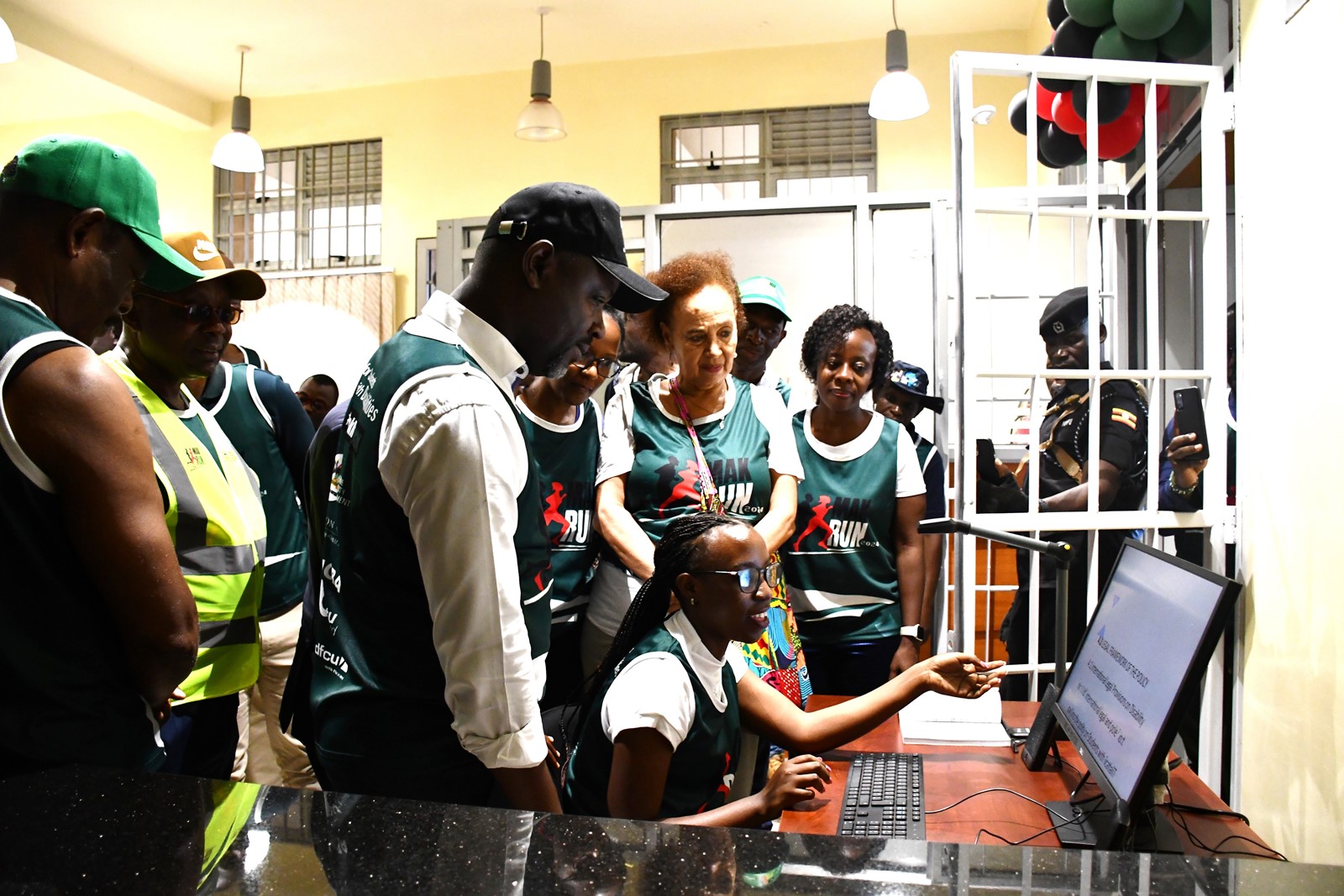
Students with disabilities at Makerere University have been requested to stop seeking for special attention and instead look for solutions and opportunities for personal growth.
This was during a mental wellness, inclusion and safeguarding session organized by the Dean of Students office and the Mastercard Foundation Scholars Program at Makerere University.
Addressing students on mental health and disability inclusion, Mr. Marvin Ggaliwango, a lecturer at the College of Computing and Information Sciences (CoCIS), noted that if the students stop complaining, they will become empowered to take charge of their own development, build resilience and engage confidently in both academic and social environments.
“Turn your lived experiences into tools for innovation. Stop complaining and start creating solutions for yourselves. You are the one living this life, and that gives you the authority to be an expert. When you develop a solution, it doesn’t just benefit you, it helps others too, by removing barriers,” Mr. Marvin Ggaliwango, said.
He encouraged students to see themselves not as victims of circumstance, but as active participants and co-creators of the inclusive environment they wish to experience.
“Learn how to communicate effectively and humbly. If you have a problem, express yourself clearly. Do not isolate yourself or feel resentful. You are not defined by disability, you may face disadvantages, but you still have ability,” he encouraged.
Throughout the session, students listened attentively as he emphasized the importance of self-awareness and personal responsibility, urging them to understand their strengths, acknowledge their limitations and take deliberate steps toward personal growth while contributing positively to the University community.
“We must enhance and ensure that our mental health is number one. Always choose yourself first. Choose what makes you happy and protect your peace. If you are at peace with yourself, your academics will improve. There is a strong link between mental wellness and academic success,” Mr. Ggaliwango, noted.
In his speech, Mr. Musa Mwambu, the Disability Inclusion Advisor at Light for the World Uganda, called upon the students with disabilities to enhance and ensure that their mental health is prioritized.
“As students living with disabilities, sometimes you over expect, because you have a disability you should be given, listened to and when people do not listen to you, you attribute it to your disability, get it from me, even those without disabilities are not listened too. Things are not happening to you because of your disability it is because of the world we live in. Everything that happens to you can happen to others,” Mr Mwambu, noted.
“Have fun with your life. Make yourself happy and be smart. Present yourself in public confidently wherever you go. The way you carry yourself can improve your mental health and how others perceive you,” Mr. Mwambu said.
He reminded the students that gaining admission to Makerere is itself a milestone.
“There are many people without disabilities who have never stepped at Makerere University. Find something that empowers you and hold on to it. You may have a physical impairment, but if you are brilliant in class, you can lead discussions and inspire others,” he added.

During the session, Dr. Rodney Rugyema, the Acting Principal Warden, welcomed the students back from the long holiday. He assured them that the University is committed to their safety and well-being while on campus.
Dr. Rugyema emphasized that the University has systems in place to protect students, both physically and psychologically and encouraged them to report any concerns promptly.
“When you are at the University, you are not on your own, we are always here for you. For us to engage you on mental wellness and inclusion, we want you to be in the right state of mind, whole and complete,” Dr Rugyema, said.
He added: “We are here to empower you and we are calling upon you not be a risk for yourself and always be able to detect risks that are likely to affect your mental health and works towards avoiding them and reporting them to ensure that the University manages them before they escalate into real harm whose impact is more serious than you can think,”
During the session, Ms. Diane Nabikolo Osiru highlighted the University’s broader commitment to safeguarding.
Safeguarding at Makerere University refers to measures put in place to promote safety and wellness of all students, staffs and other stakeholders.
“At Makerere University, safety is not a luxury for few. but it is a right for every student. As the semesters begins, we are urging you to learn how to identify signs of harm or abuses and report them to the appropriate safeguarding contact points,” Ms Nabikolo, said.
For support in case of any harm or abuse, International and Refugee Students, can access support through the Advancement and International Office, while Students with Disabilities, can utilize the Disability Support Center. Those with personal and emotional challenges, can visit the Counselling and Guidance Centre.
In his speech, Dr Joab Agaba, a Lecturer in the College of Computing and Information Sciences, guided students how to report risks and incidences to the MakSafeSpace, the e-reporting platform complimenting the other University traditional reporting channels.
Mr. Henry Nsubuga, the Manager of the Counselling and Guidance Center, shared practical strategies for coping with stress effectively including time management, setting realistic goals, seeking support from peers or counsellors.
Students speak out
Shanitah Nahamya, 2nd year student of the Bachelor of Adult and Community Education
“I have learned how to respectfully and appropriately engage with students with disabilities. In the past, I often felt pity when I encountered them, but now I understand that what they need is not pity, it is respect, support, and equal opportunity.”
Guo Dorothy Geri, 1st year student of the Bachelor of Commerce
“I have learnt how to use inclusive language. Before offering help to a student with a disability, I will first ask them, because not all the time do they need our help. You might think someone wants to be helped to cross the road, yet they are waiting for someone.”
Valentines Doris Aduka, 1st Year student of the Bachelor of Biomedical Science
“I have been calling students with disabilities special names, thinking it was kind. But I have learned that they do not want to be treated differently or labeled in a special way. What they value most is being treated like everyone else, with respect, dignity, and fairness.”
General
Strengthening Global Partnerships to Advance Research, Innovation, and Graduate Training: Makerere University Hosts Delegation from the University of Warwick
Published
1 day agoon
February 19, 2026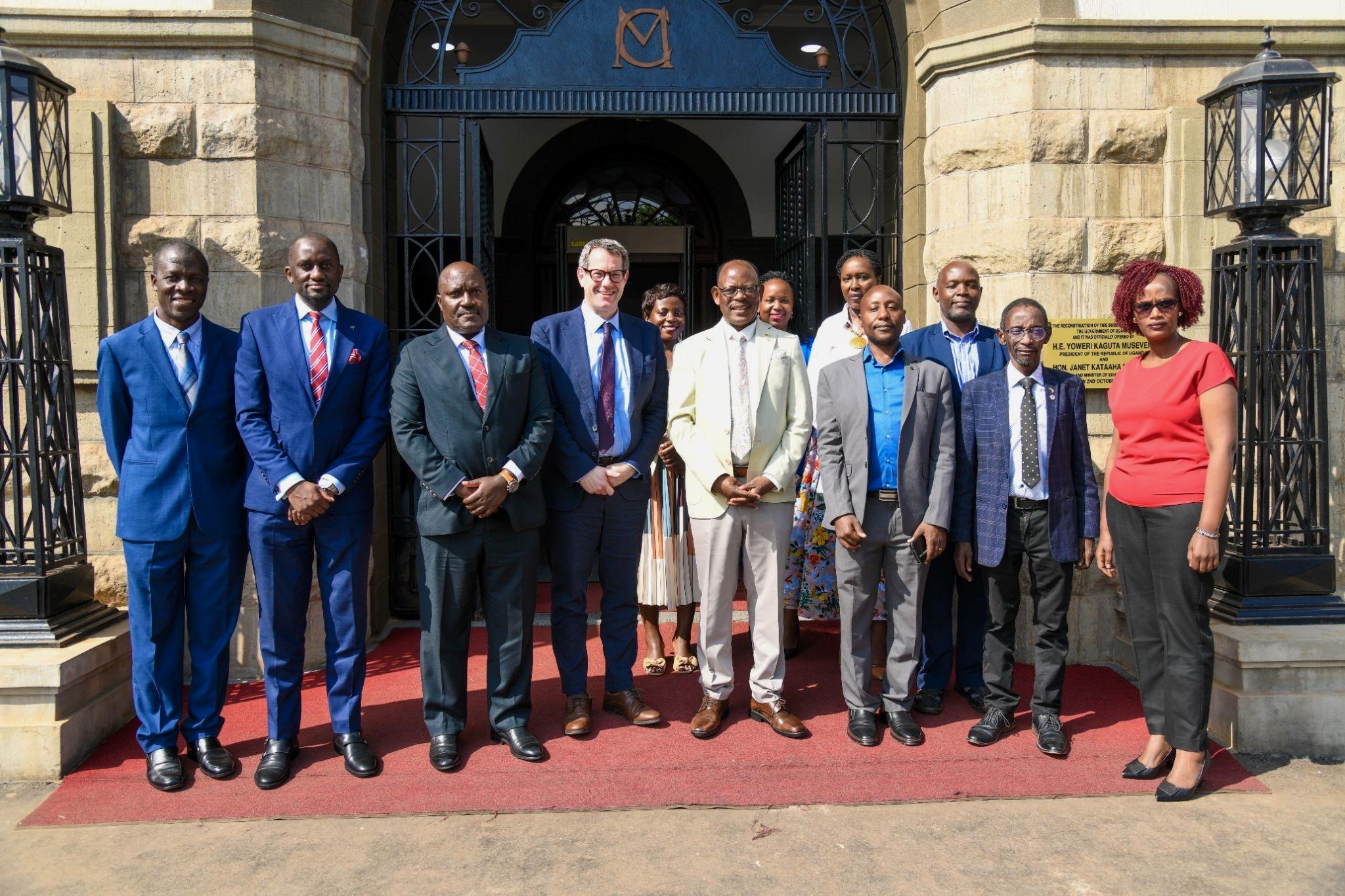
Makerere University continues to deepen its global engagement agenda through strategic partnerships that enhance research, innovation, and graduate training. On Friday, 13th February, 2025, during a recent engagement with a delegation from the University of Warwick (UK), university leaders, researchers, and administrators explored potential collaborations to address pressing development challenges and strengthen institutional capacity.
Expanding Collaboration in Research and Innovation
Welcoming the delegation, Prof. Fred Masagazi-Masaazi, Chairperson of the Makerere University Research and Innovations Fund (Mak-RIF) Grants Management Committee, emphasized the growing dialogue between Makerere University and the University of Warwick. He noted that ongoing discussions are focused on resource mobilization to support research and innovation, as well as building sustainable academic exchanges for both staff and students.
Dr. Roy Mayega, Mak-RIF Coordinator, together with Mrs. Phoebe Lutaaya Kamya, Deputy Coordinator, and members of the Mak-RIF team, highlighted the Fund’s role in catalyzing collaborative research and strengthening partnerships that translate research into societal impact.
Mr. Simon Kizito, Deputy University Secretary, outlined key areas identified for collaboration, including joint research and innovation initiatives, benchmarking visits across disciplines such as law, science, and ICT, and student exchanges designed to strengthen applied research skills. He also pointed to opportunities for training Makerere staff in specialized areas such as tropical diseases and innovation ecosystems, drawing lessons from Warwick’s strong linkages with industry partners located within its campus.
Makerere’s Strategic Priorities and Global Role
In his remarks, the Vice Chancellor underscored the longstanding relationship between Makerere University and the University of Warwick, dating back to the early 1980s, initially through staff training and more recently through collaborative research.
He highlighted Makerere’s historic contribution to leadership development across Africa and beyond, and the University’s continued growth following faculty rebuilding efforts in the 1980s, which have strengthened its research capacity. Today, Makerere has over 1,300 academic staff, more than 1,000 of whom hold PhDs, positioning the institution to play a leading role in knowledge production.
The Vice Chancellor also outlined major thematic areas where partnerships are critical:
- Climate change and food security: Researchers at the College of Agricultural and Environmental Sciences (CAES) are developing drought-resistant and high-yield seed varieties to address changing weather patterns and food insecurity.
- Public health and infectious diseases: Uganda faces frequent outbreaks of diseases such as Ebola and Marburg, and Makerere has built strong capacity in outbreak response and tropical medicine. The University’s medical school and the Infectious Diseases Institute (IDI) continue to play a pivotal role in research and treatment.
- Peace and conflict studies: Through initiatives such as the Rotary Peace Centre, Makerere contributes to training global leaders in conflict resolution.
- Climate-sensitive macroeconomic modelling: Makerere recently hosted a conference in collaboration with the Ministry of Finance, Planning and Economic Development to advocate for climate-responsive macroeconomic modelling and to plan for the establishment of a Centre of Excellence in this field.
- Innovation and technology: The University’s innovation ecosystem has produced notable outputs, including Africa’s first electric vehicle and ongoing work to expand incubation facilities to enable students to graduate with viable enterprises.
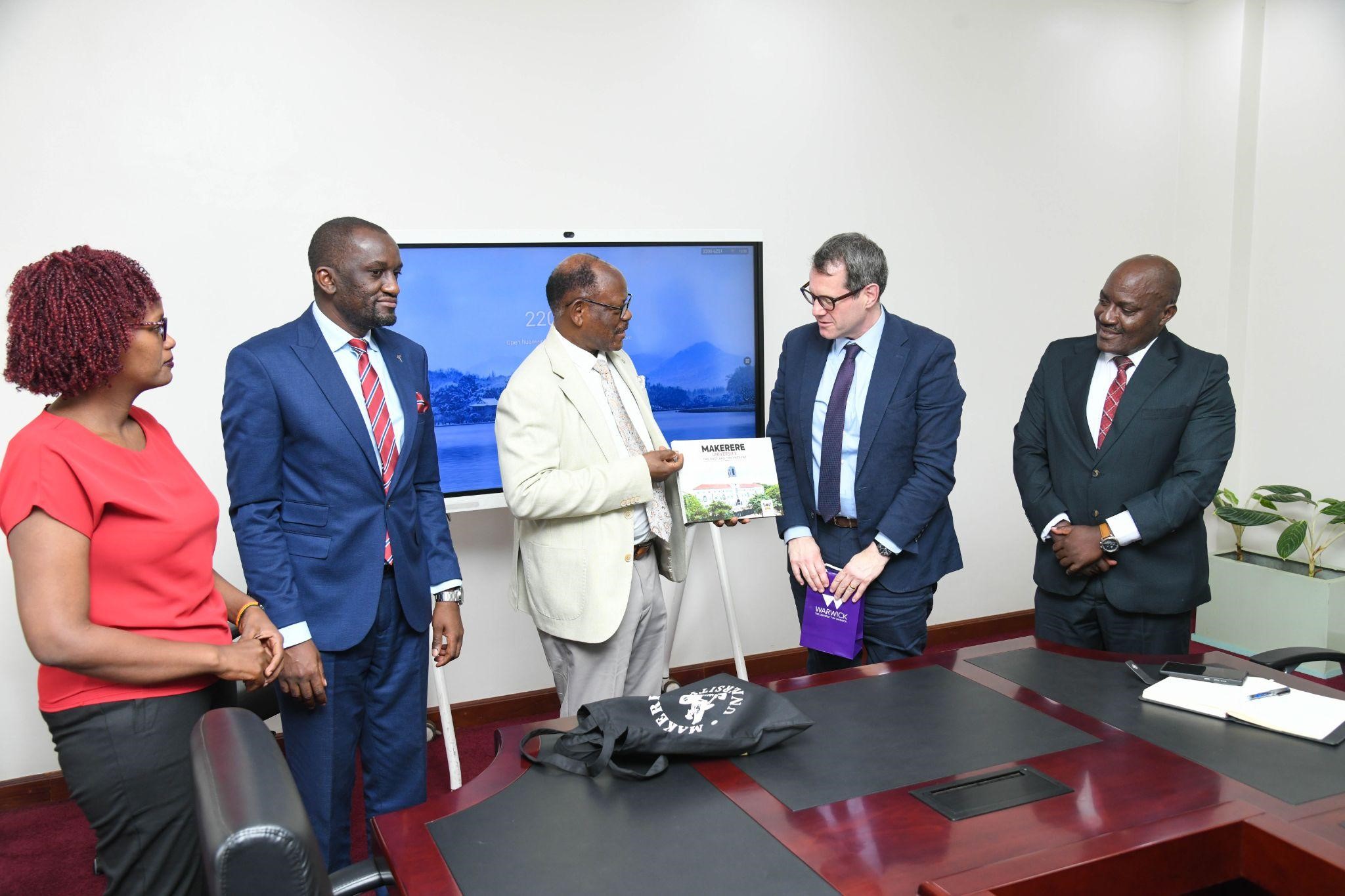
The Vice Chancellor emphasized that addressing youth unemployment remains a central priority, noting that innovation, entrepreneurship, and graduate training are essential to building stable societies.
He further stressed the importance of expanding graduate education. Africa currently produces a small proportion of global research output, and increasing PhD and Master’s training supported by international partnerships remains critical to accelerating knowledge production and development outcomes.
Internationalization and Shared Learning
Speaking on behalf of the University of Warwick, Professor Daniel Branch, Deputy Vice Chancellor, reflected on Warwick’s own institutional journey, noting that its growth has been driven by a strong focus on internationalization, innovation, and research. He expressed Warwick’s commitment to building productive partnerships with African universities, including Makerere, to advance joint research, training, and innovation.
Professor Branch also highlighted the importance of university-industry linkages, citing examples such as collaborations with major manufacturing firms that provide practical training opportunities and inform curriculum development.
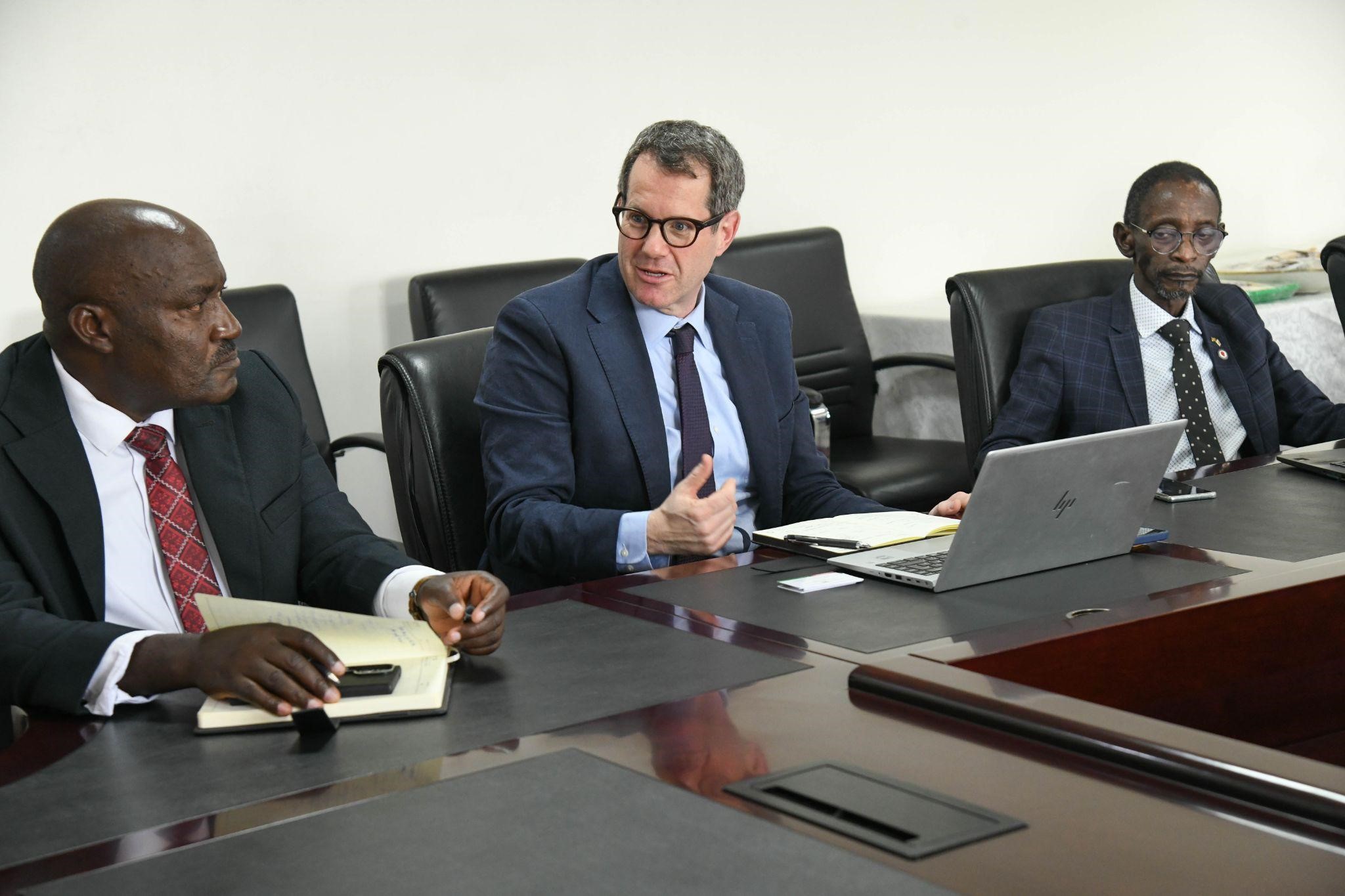
Showcasing Research and Innovation at CEDAT
A second session of the engagement was held at the College of Engineering, Design, Art and Technology (CEDAT), where academic leaders and researchers presented ongoing work across multiple disciplines.
Presentations included:
- Development of a solar water pump through reverse engineering (Dr. Edmund Tumusiime)
- Crane Cloud, a locally developed cloud-computing platform (team from the College of Computing and Information Sciences)
- Profiling gaseous emissions associated with burnt bricks (Dr. Nathan)
- Integration of centralized grid and decentralized renewable off-grid systems: a techno-economic analysis (Dr. Abubaker Waswa)
- Innovation and digitalization pathways for affordable housing in Sub-Saharan Africa (Prof. Stephen Mukiibi)
The session was attended by CEDAT leadership, including the Principal, Prof. Moses Musinguzi, as well as deans and heads of department from engineering, built environment, and industrial and fine arts. The day’s activities were concluded with a tour of Makerere University’s Innovation Hub.
The engagement reaffirmed Makerere University’s commitment to building strong, mutually beneficial partnerships that accelerate research, strengthen graduate training, and drive innovation. As global challenges such as climate change, public health threats, and youth unemployment intensify, collaboration among universities remains essential to developing scalable, evidence-based solutions.
Through partnerships such as the one Makerere University and the University of Warwick hope to activate through a Memorandum of Understanding in the near future, Makerere continues to position itself as a leading research-intensive university dedicated to transforming society through knowledge, innovation, and global cooperation.
Caroline Kainomugisha is the Communications Officer, Advancement Office, Makerere University.
General
Mastercard Foundation Scholars embrace and honour their rich cultural diversity
Published
2 days agoon
February 18, 2026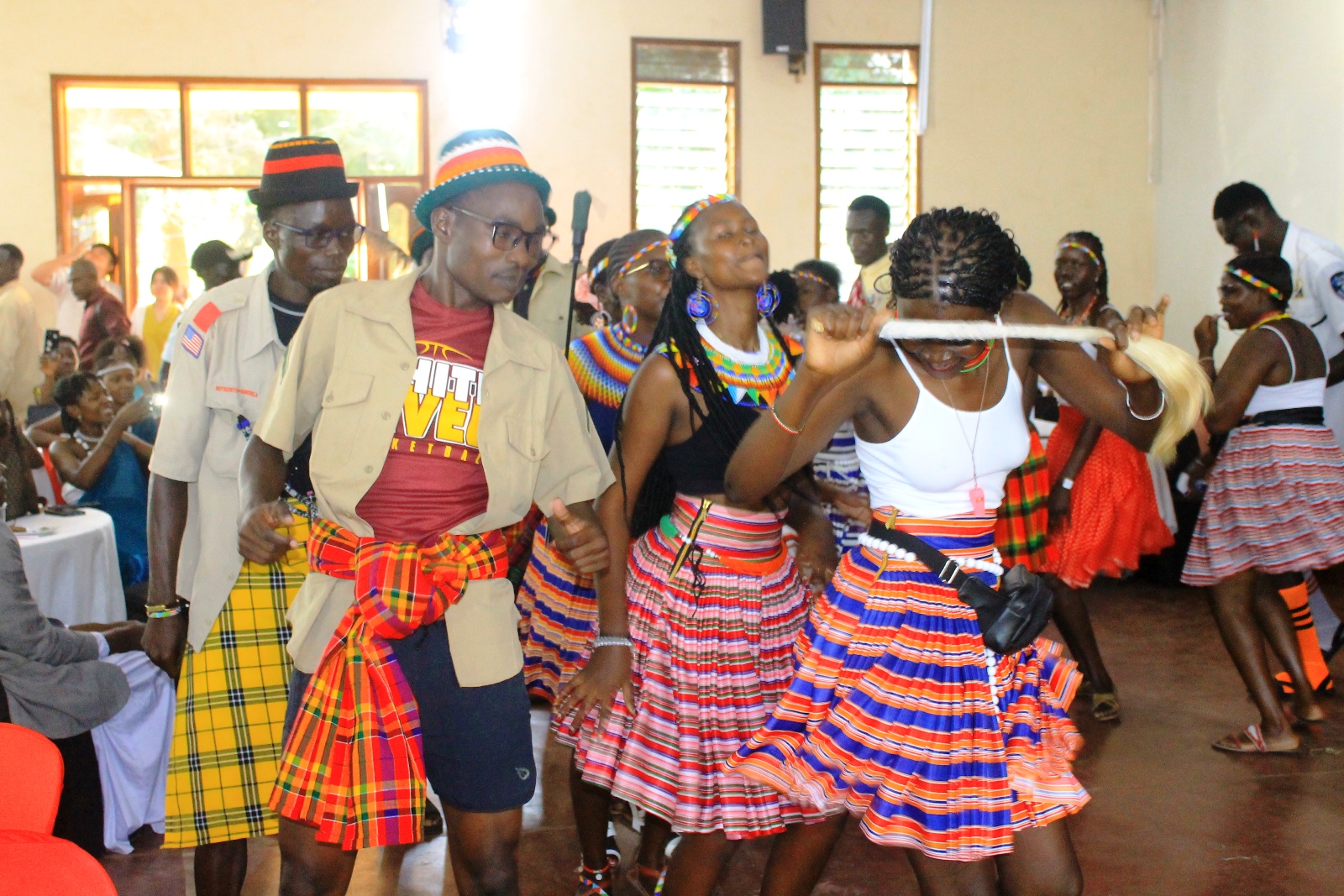
On the evening of Friday, 13th February 2026, the Scholars of Mastercard Foundation embraced the new semester with enthusiasm and celebration, showcasing their rich cultural diversity at the annual cultural dinner. This event not only fostered a sense of community but also highlighted the importance of cultural exchange and understanding among the scholars. The purpose of the cultural dinner is to foster unity in diversity within the Scholars community and to enable young people to appreciate and respect each other’s cultural differences.
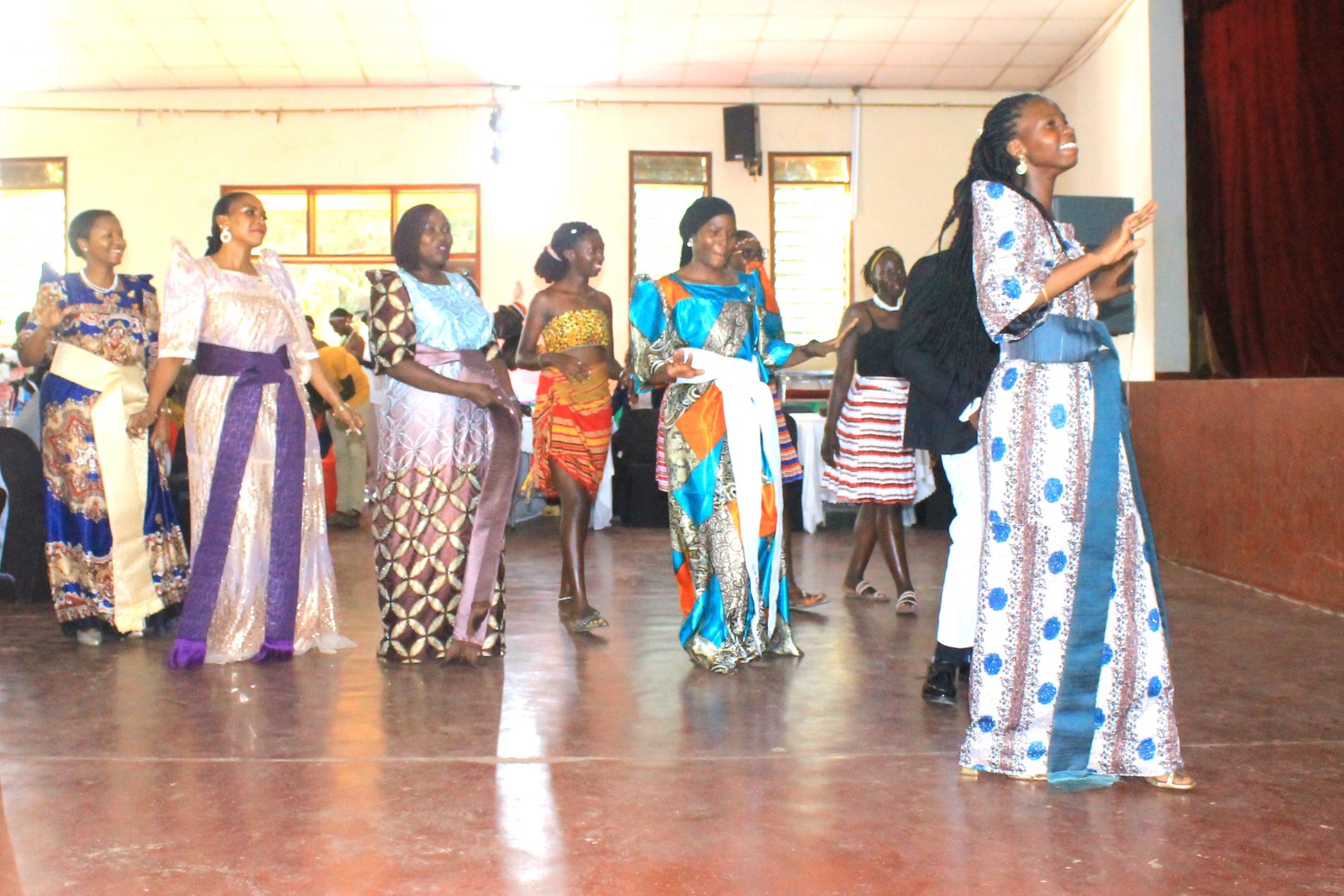
The Mastercard Foundation Scholars community at Makerere University is a vibrant tapestry of countries, cultures, and backgrounds. In recognition of this richness, the Program team has proposed organising an annual cultural dinner to kick off each new semester. This event aims to achieve several important objectives:
- Promote mutual understanding and cross-cultural appreciation among Scholars.
- Celebrate and highlight the unique cultural identities within our community.
- Encourage confidence and creativity through a dynamic talent showcase.
- Foster a sense of unity and excitement as we embark on the new academic semester together.
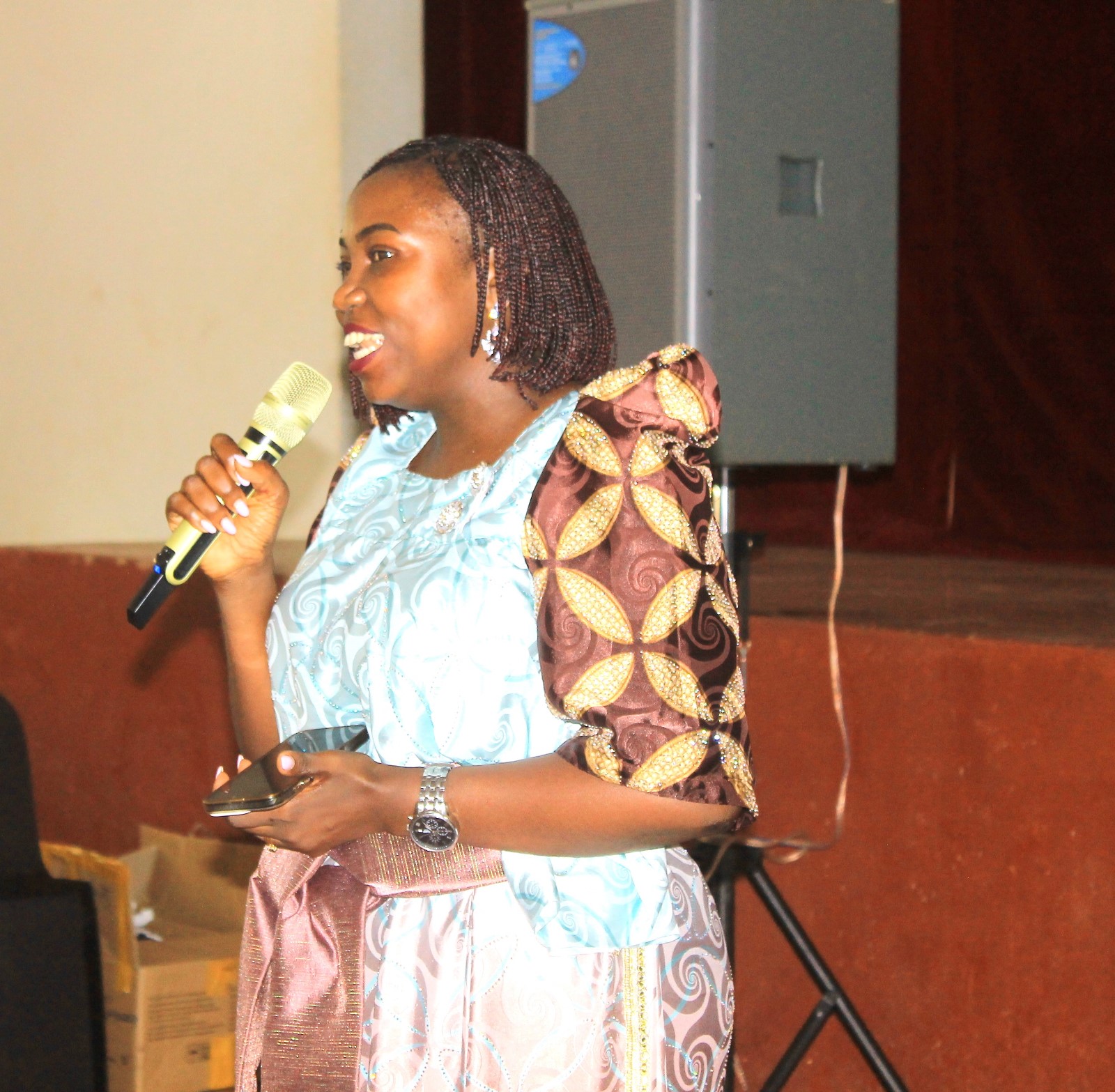
During the event, the Scholars proudly showcased their diverse cultures through a vibrant display of traditional attire, engaging dances, delectable dishes, and meaningful expressions in their native languages. The event showcased a rich tapestry of cultures, including the Baganda from Central Uganda; the Banyankore, Bakiga, Batooro, and Banyoro from Western Uganda; the Acholi from the North; the Karamojong from the Northeast; and the Basoga and Bagisu from the Eastern region, among many other indigenous tribes in Uganda. Additionally, attendees enjoyed cultural performances from South Sudan, Rwanda, and the Democratic Republic of Congo, celebrating the unique heritage of each community.
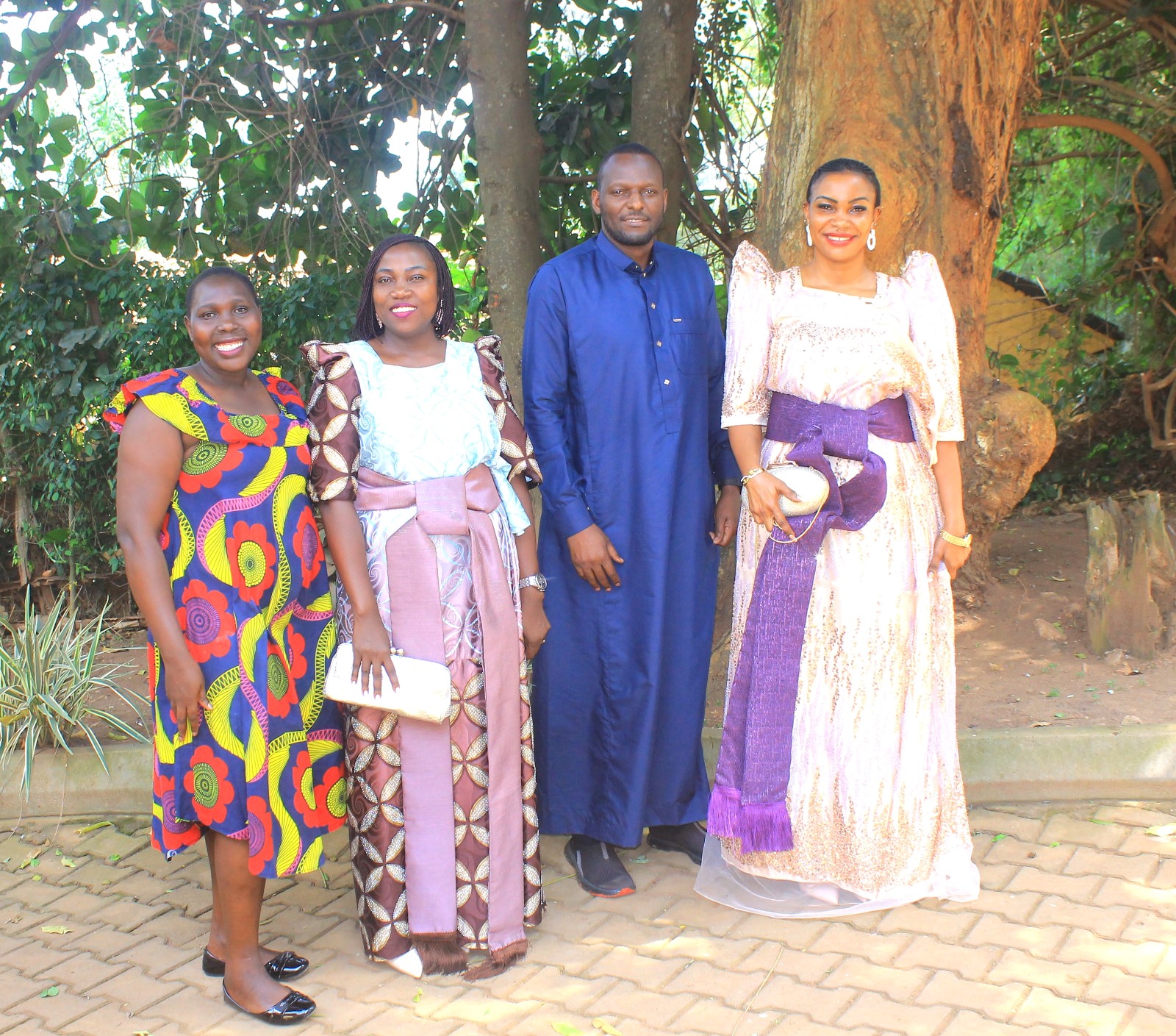
The event also featured a vibrant showcase of cultural attire, accompanied by traditional songs and dances. Attendees enjoyed cultural dress modelling, engaging performances, art displays, and interactive quizzes, culminating in exciting prizes awarded to outstanding performers. This diverse array of activities contributed to a rich celebration of creativity and cultural exchange.
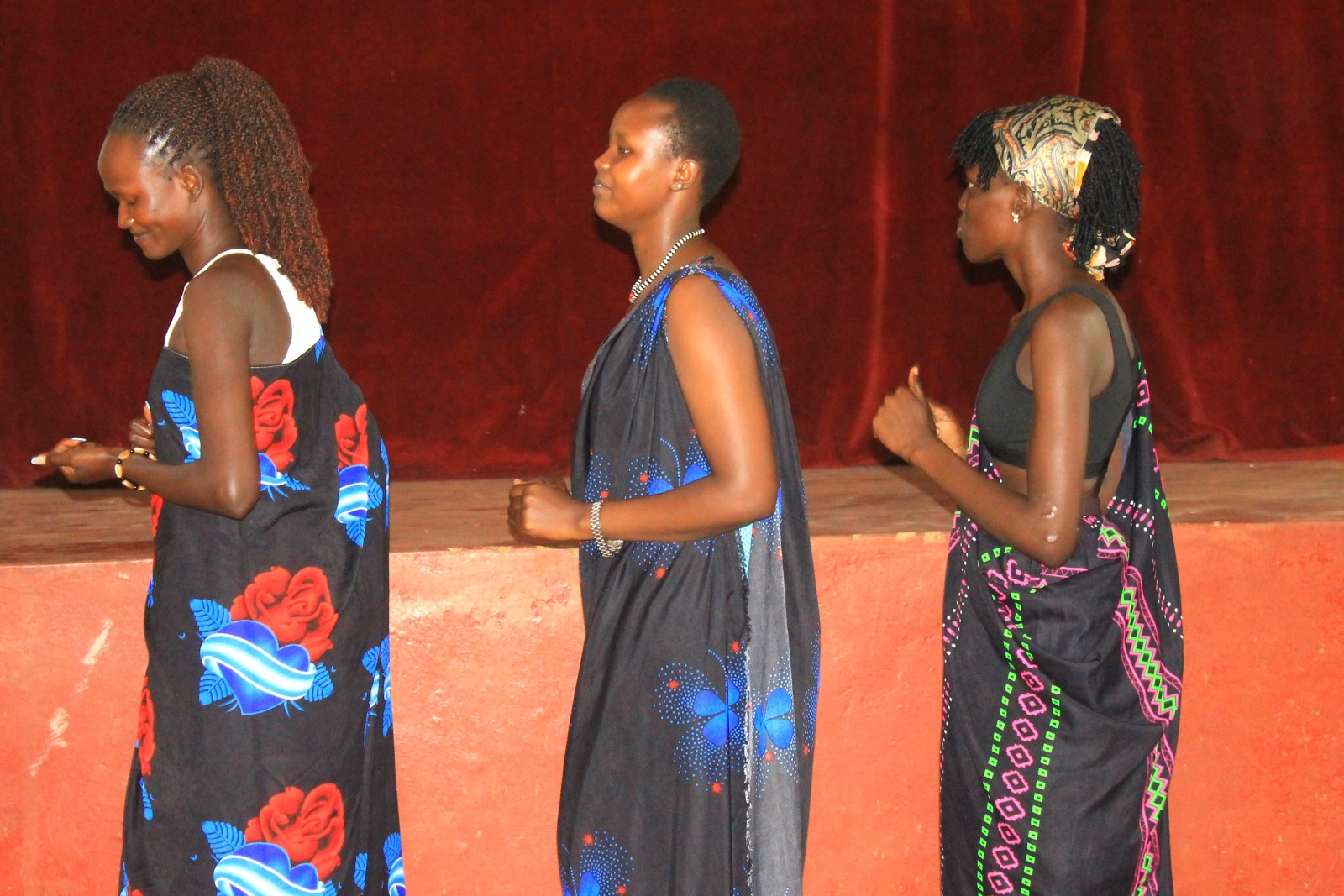
The Mastercard Foundation Scholars Program at Makerere University is committed to fostering holistic development, community building, and leadership among Scholars. At the start of each semester, the Program Team hosts a cultural dinner to reconnect the Scholars community, share key Program updates, and create an inclusive space to strengthen belonging and engagement. The cultural dinner is a critical platform for raising awareness of the need to appreciate and respect cultural diversity.
Bernard Buteera is the Principal Communications Officer for the Mastercard Foundation Scholars Program at Makerere University.
More Photos from the Dinner
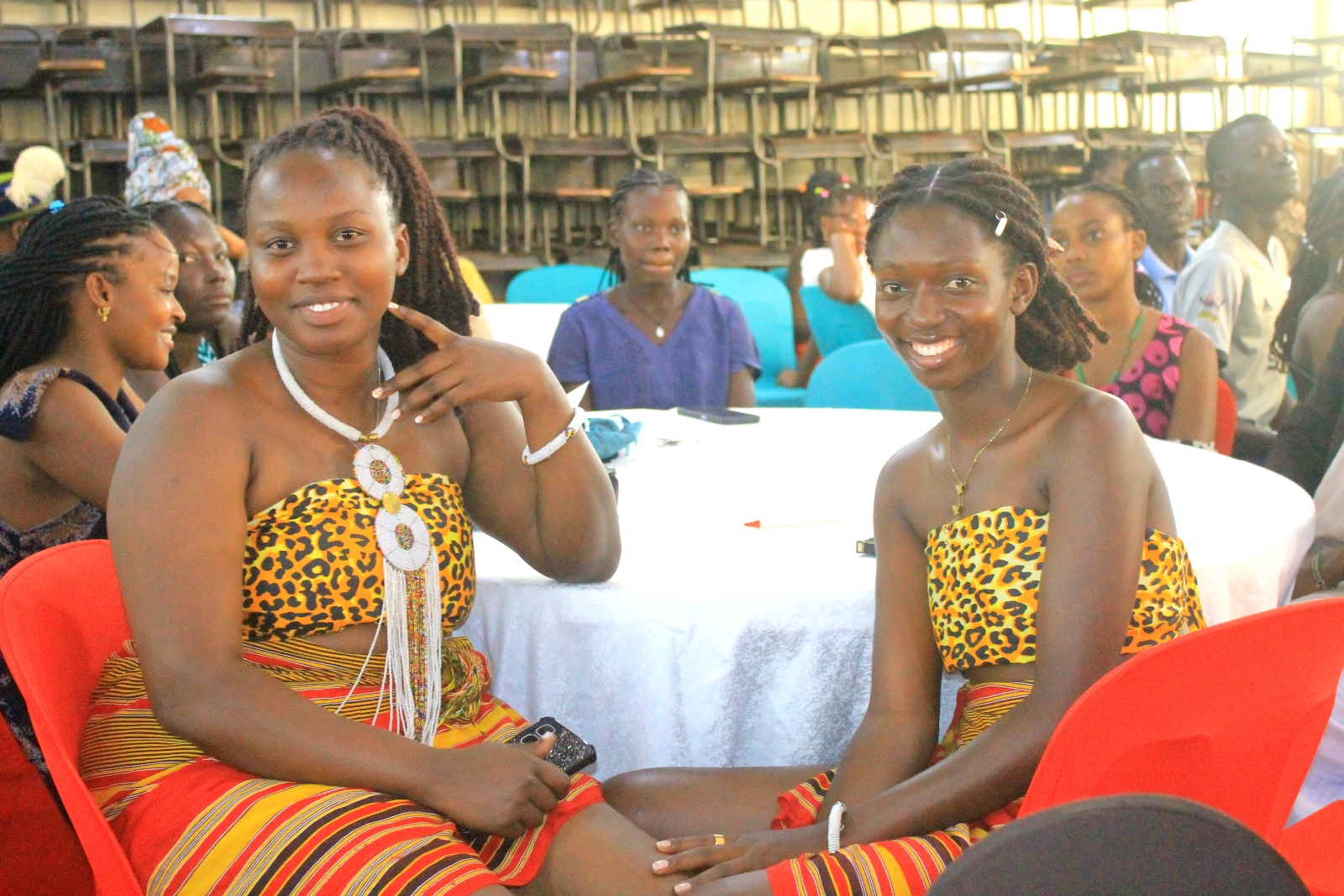
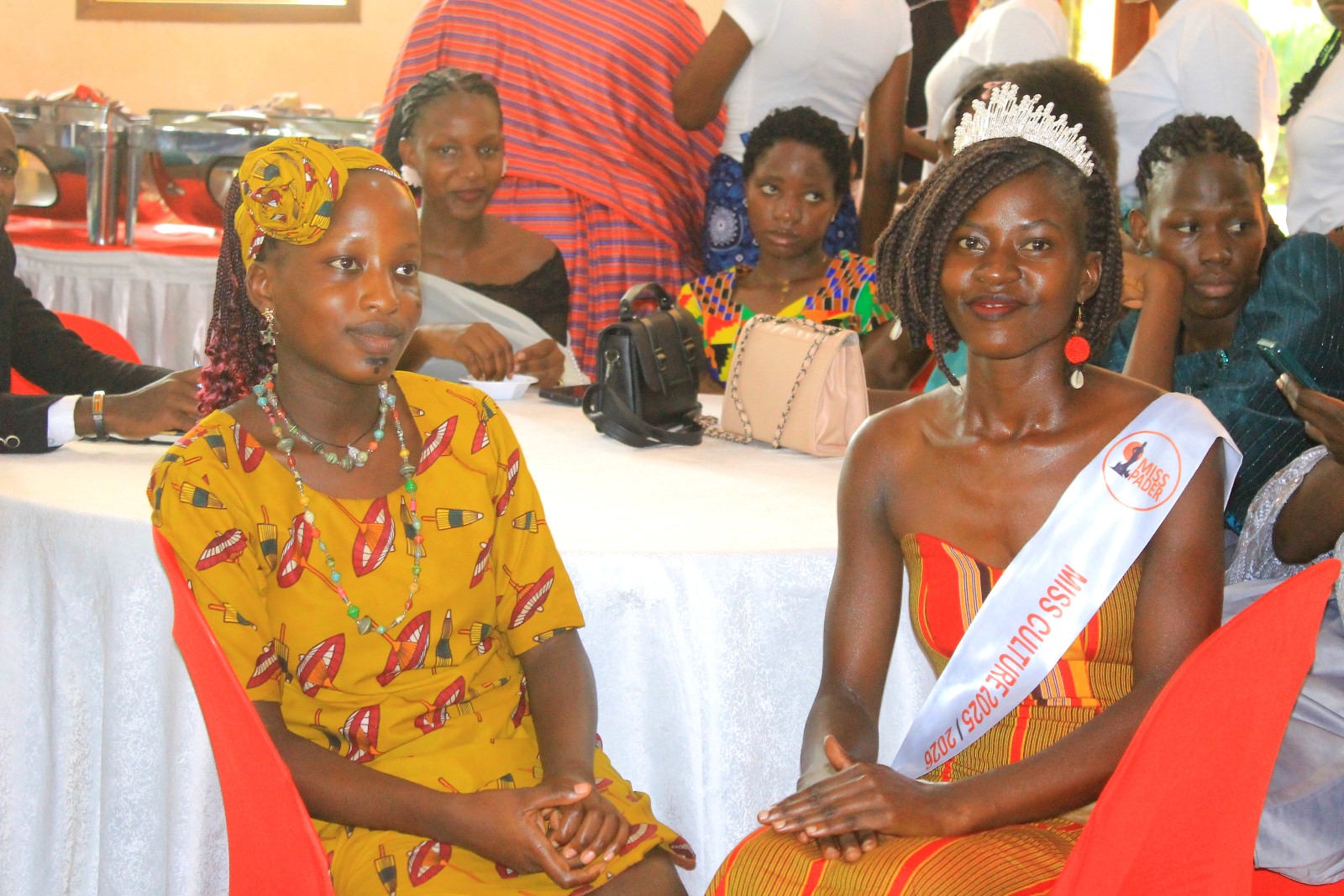
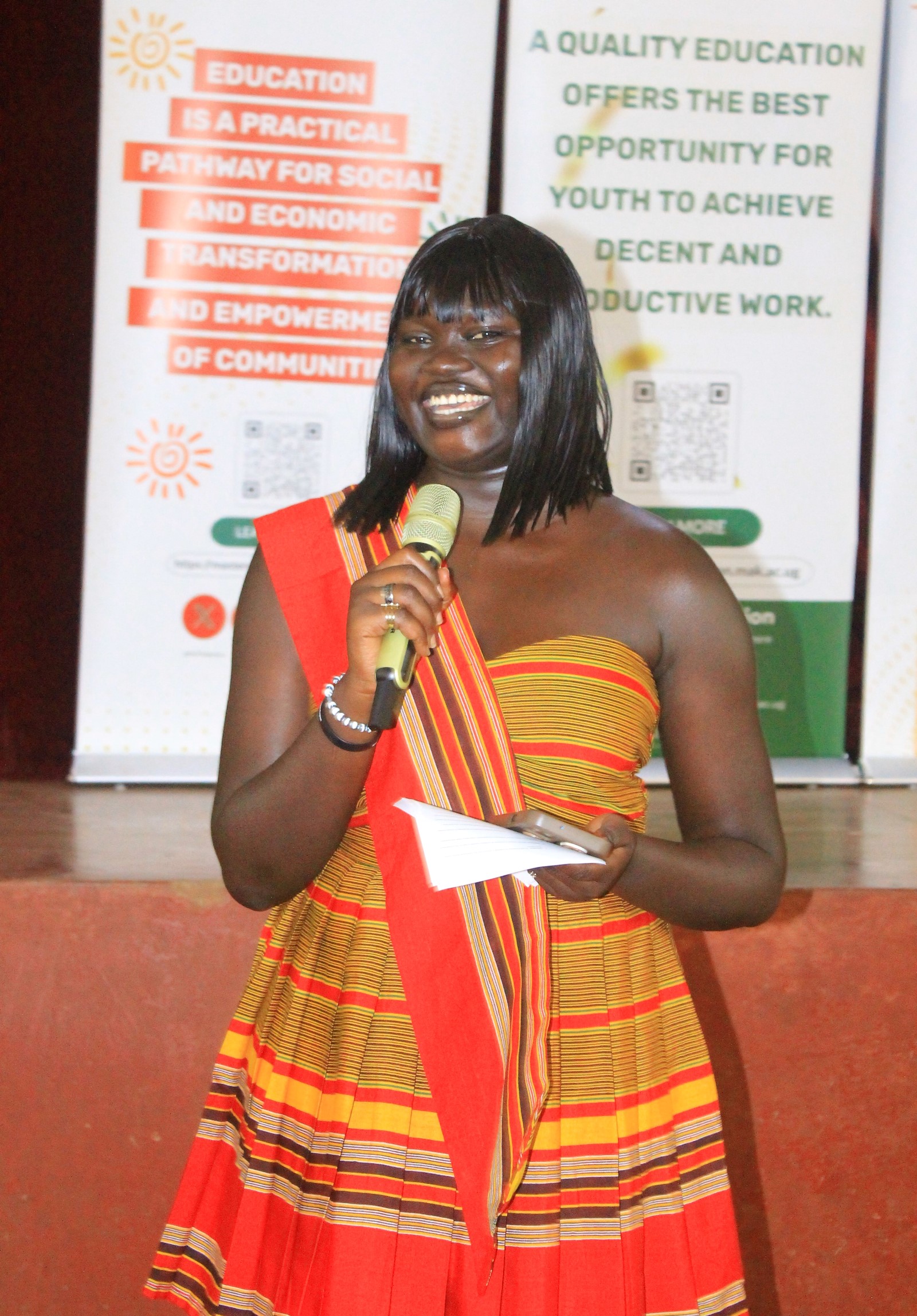
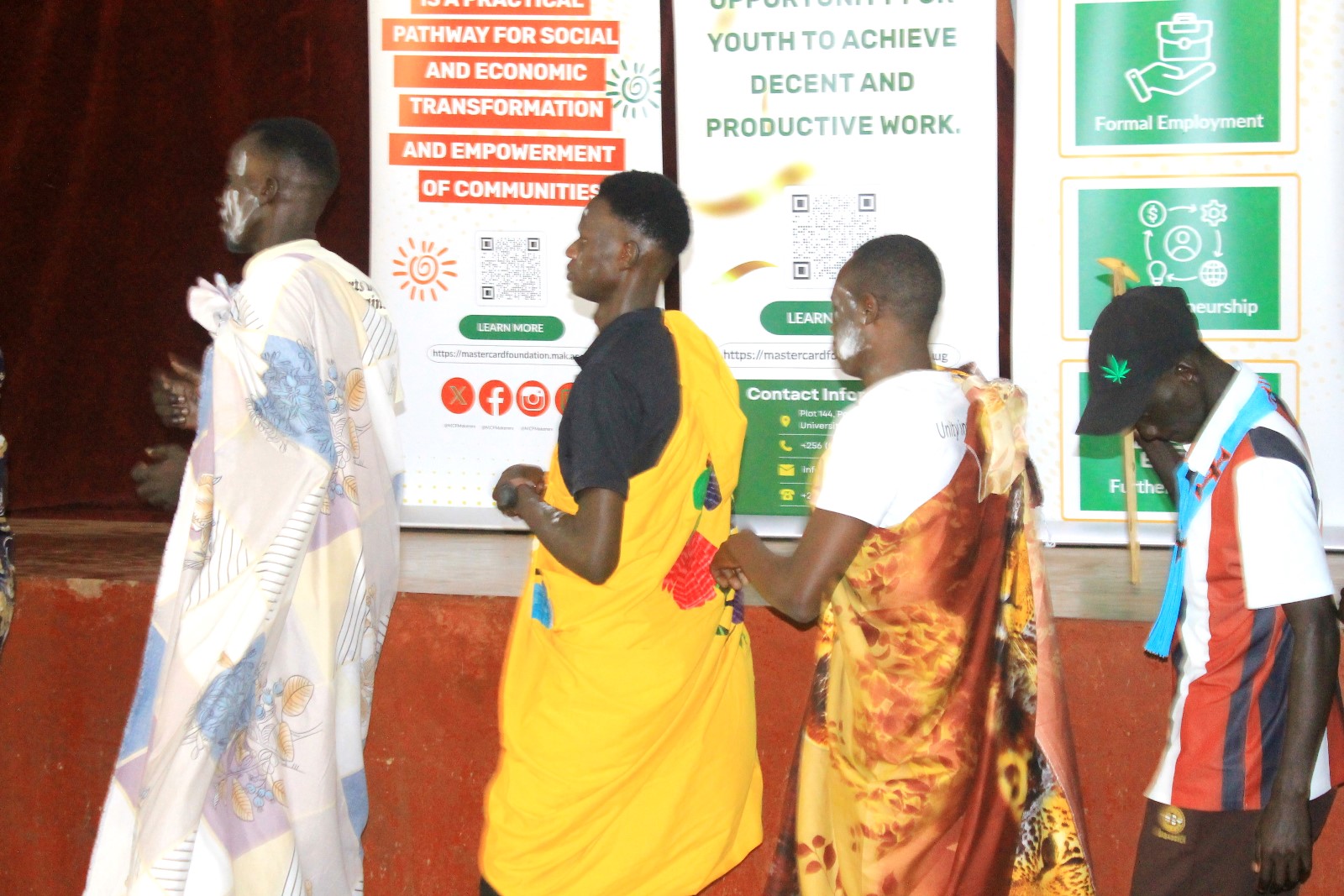
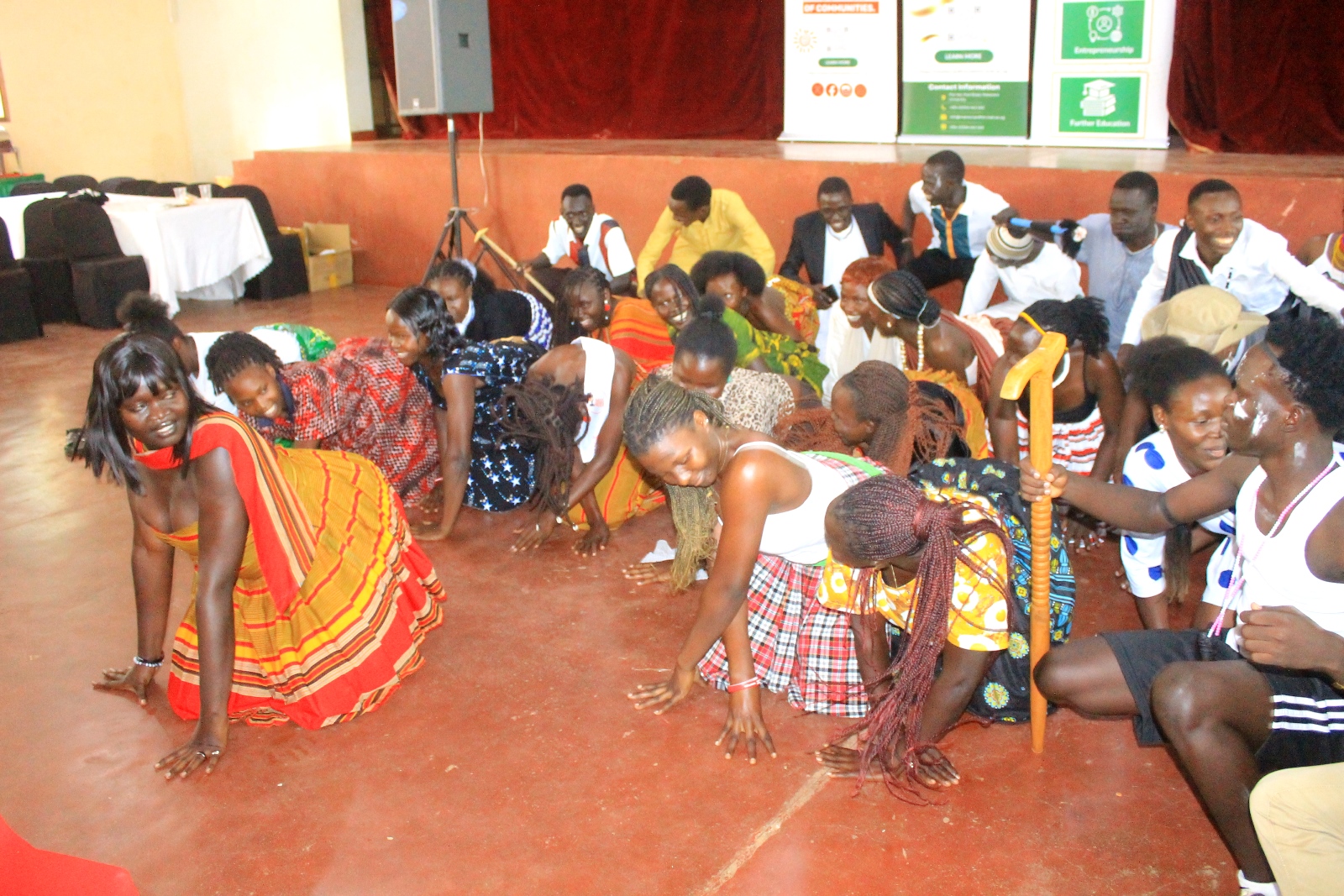
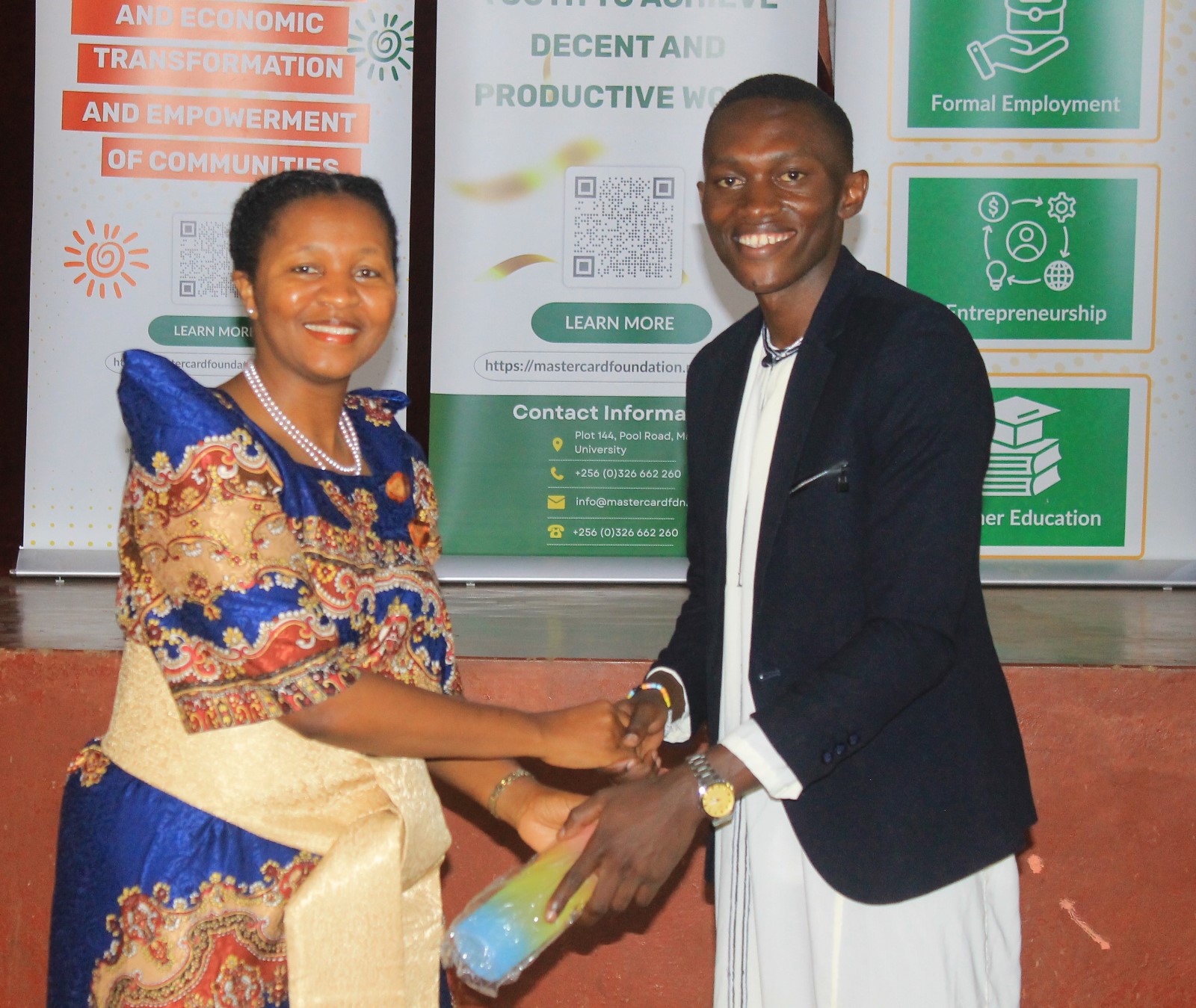
Trending
-

 General1 week ago
General1 week agoAptitude Exam (Paper 1) Results for the Mature Age Entry Scheme 2026/2027
-

 Health2 weeks ago
Health2 weeks agoHow Jimmy Osuret Turned Childhood Trauma into Evidence for Safer School Crossings
-

 Health2 days ago
Health2 days agoUganda has until 2030 to end Open Defecation as Ntaro’s PhD Examines Kabale’s Progress
-

 General1 week ago
General1 week agoFor Youth by Youth – Call for Second Cohort Applications
-

 General2 days ago
General2 days agoMastercard Foundation Scholars embrace and honour their rich cultural diversity
